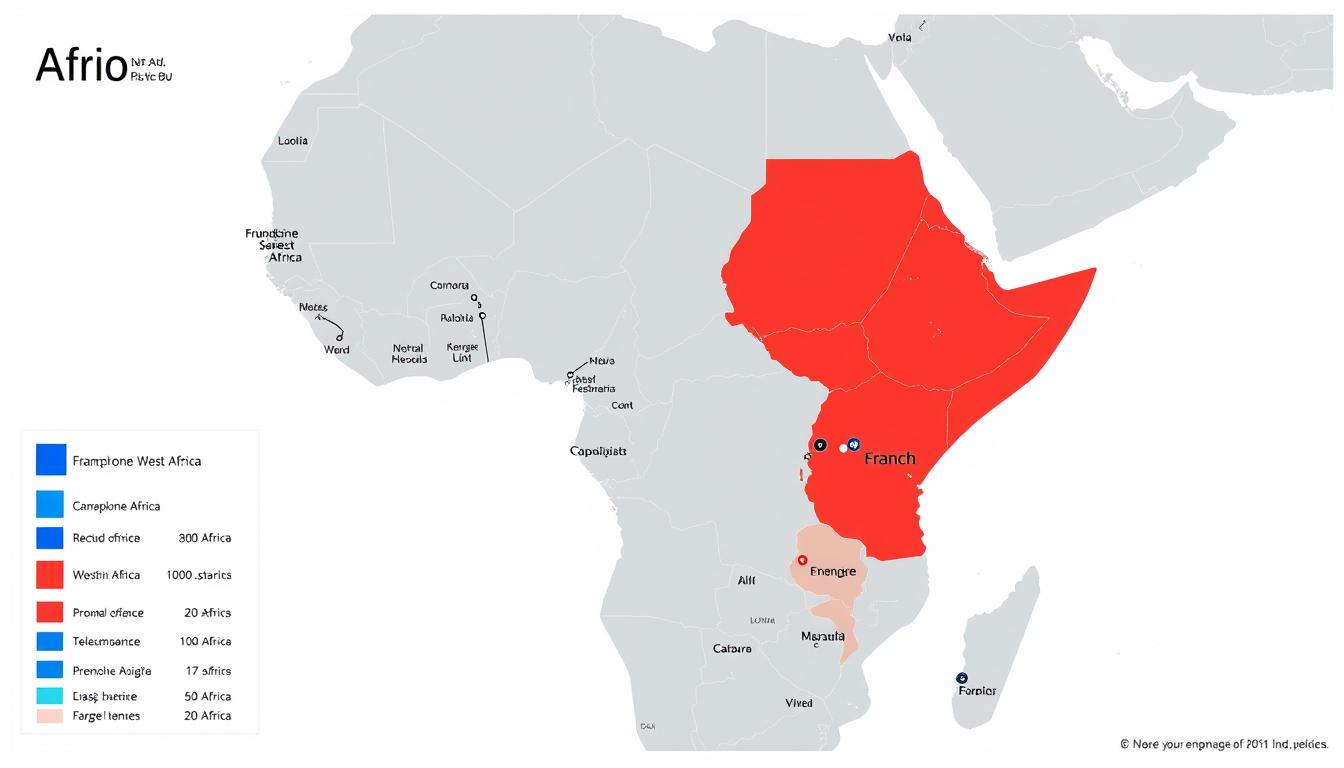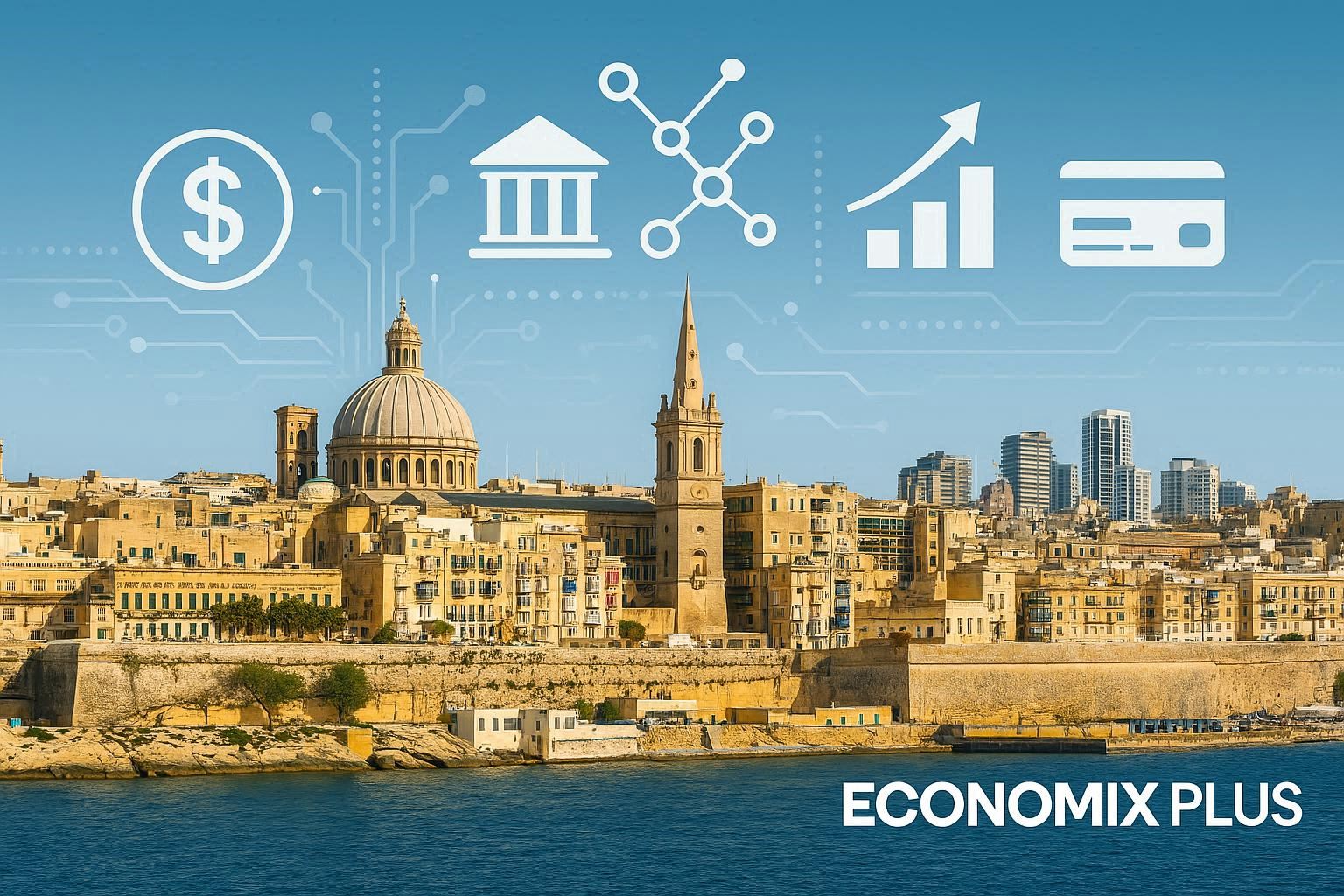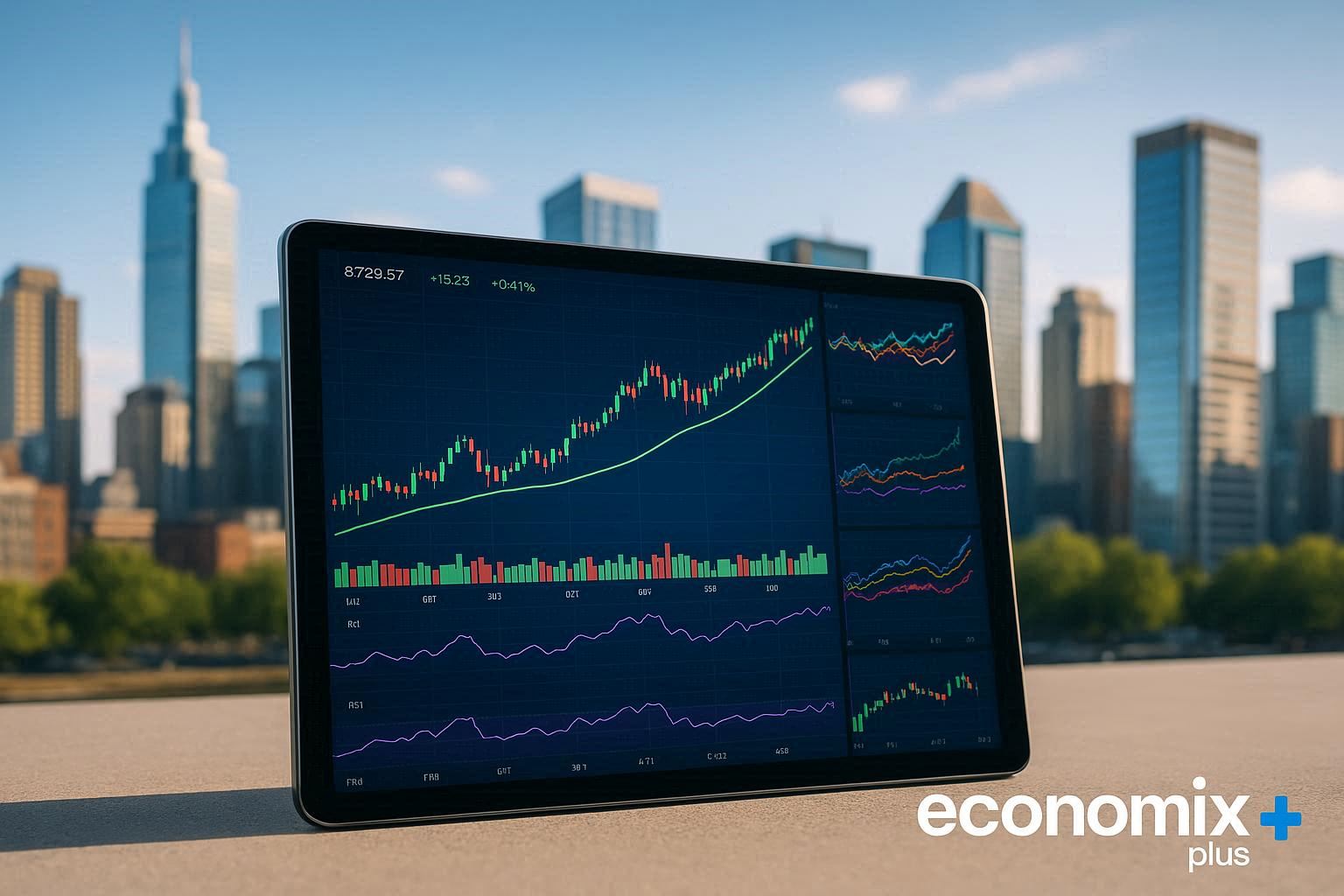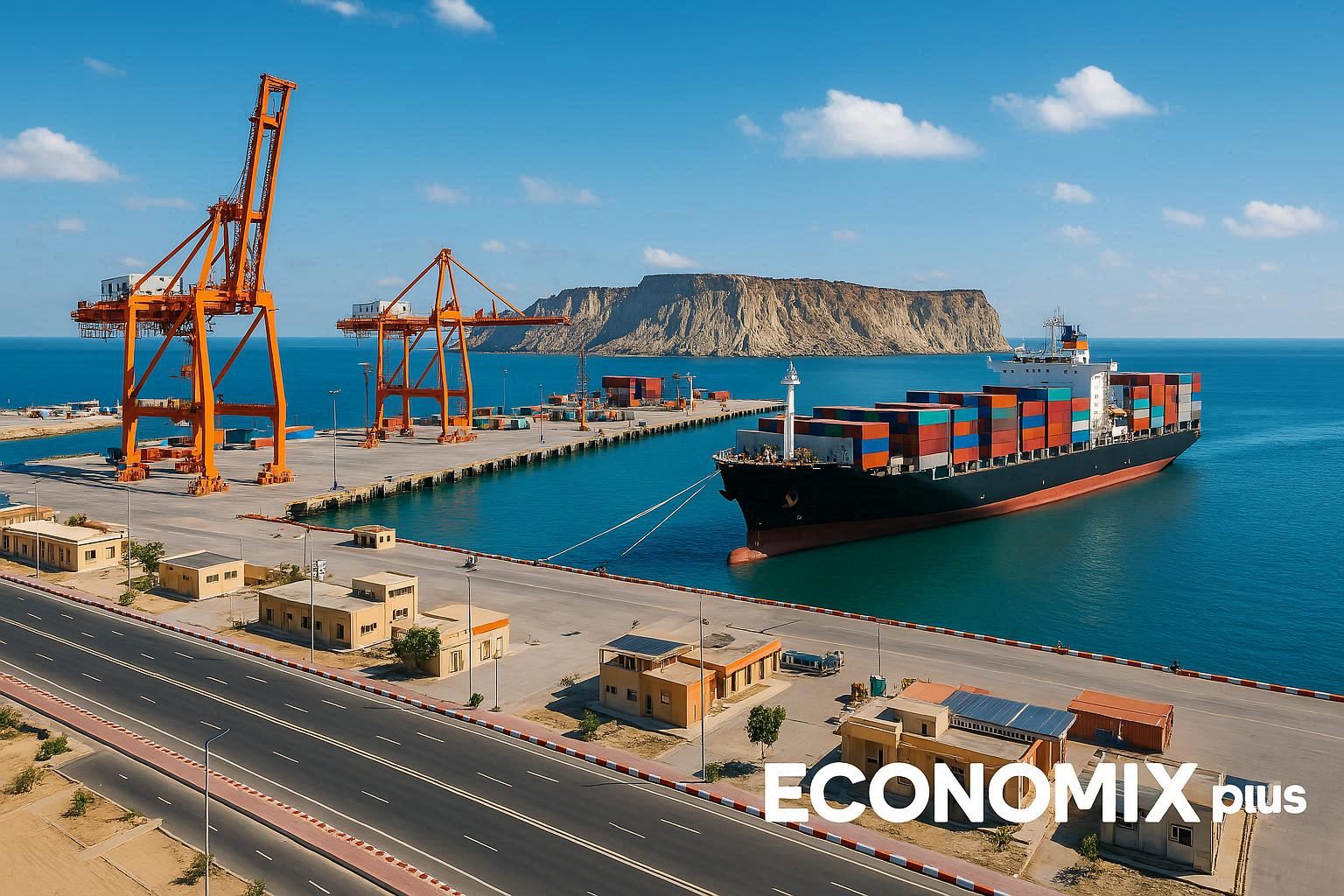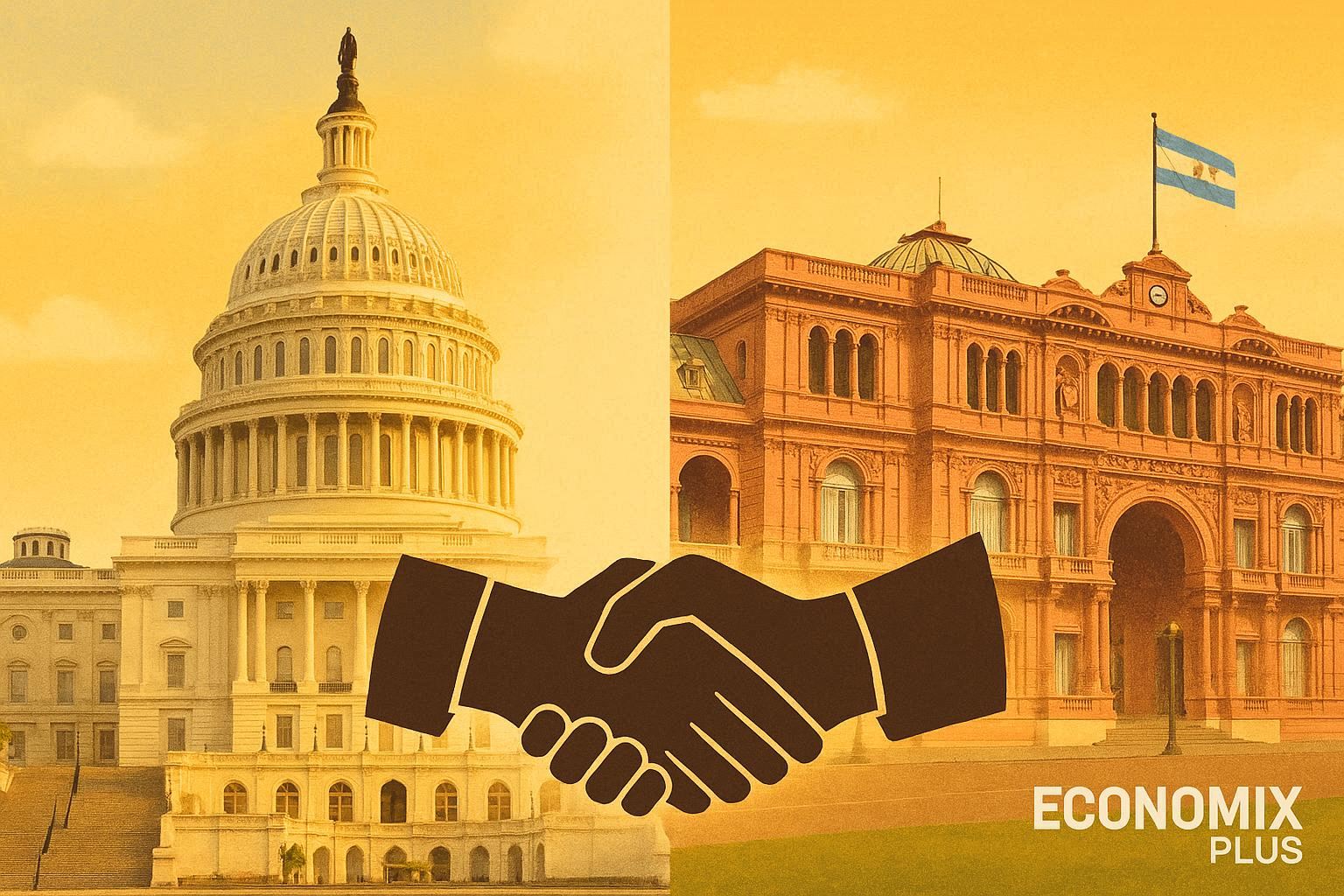The economic battleground of Africa has long been a theater where European powers vie for influence, with France and the United Kingdom standing as two of the most significant players. Their historical entanglements with the continent have evolved into complex commercial relationships that continue to shape Africa’s economic landscape. As the continent emerges as a critical frontier for global trade and investment, understanding the comparative advantages and approaches of these two European powers becomes increasingly important for policymakers, investors, and analysts alike.
This analysis examines the multifaceted economic competition between France and the UK across African markets, exploring how colonial legacies have transformed into modern commercial strategies. By examining trade volumes, sectoral investments, diplomatic leverage, and future trajectories, we can assess which nation currently holds greater sway over Africa’s diverse economies and where their influence may be headed in an increasingly multipolar world.
Comparative map of French and British economic influence across African regions
Historical Legacy and Entry Points
The economic relationship between France, the UK, and Africa is deeply rooted in their colonial histories, which continue to shape modern commercial engagements. France’s colonial approach centered on cultural and administrative assimilation, creating the framework for what would later be termed “Francafrique” – a system of close political, economic, and military ties between France and its former colonies. This system included the establishment of the CFA franc currency zone, which remains controversial today as a mechanism that some critics argue perpetuates economic dependence.
The United Kingdom, by contrast, employed a system of indirect rule that preserved local power structures while extracting economic benefits. This approach evolved into the Commonwealth network, which today provides the UK with diplomatic and commercial entry points across Anglophone Africa. The Commonwealth’s emphasis on shared values and voluntary cooperation presents a different model from the more structured French approach.
France’s Colonial Framework
France maintained tight control over its colonies through direct administration, imposing French language, education systems, and governance structures. Post-independence, this translated into continued economic integration through:
- The CFA franc currency, pegged first to the French franc and later to the euro
- Preferential trade agreements favoring French companies
- Military cooperation agreements allowing for French bases
- Cultural institutions promoting French language and values
Recent debates around the CFA franc highlight ongoing tensions, with critics arguing it limits monetary sovereignty while supporters point to the stability it provides. In 2020, the West African CFA was renamed the Eco, though its fundamental mechanisms remain largely unchanged.
UK’s Commonwealth Approach
Britain’s colonial economic model emphasized trade networks and resource extraction while maintaining local governance structures. This evolved into:
- The Commonwealth of Nations, a voluntary association of 54 countries
- Trade preferences through the Commonwealth system
- English as a lingua franca for business and education
- Legal and financial systems based on British models
Post-Brexit, the UK has actively renegotiated trade agreements with African nations, seeking to maintain preferential access while positioning itself as a global trading partner independent of EU frameworks. The UK-Africa Investment Summit in 2020 signaled this renewed focus, with £6.5 billion in commercial deals announced.
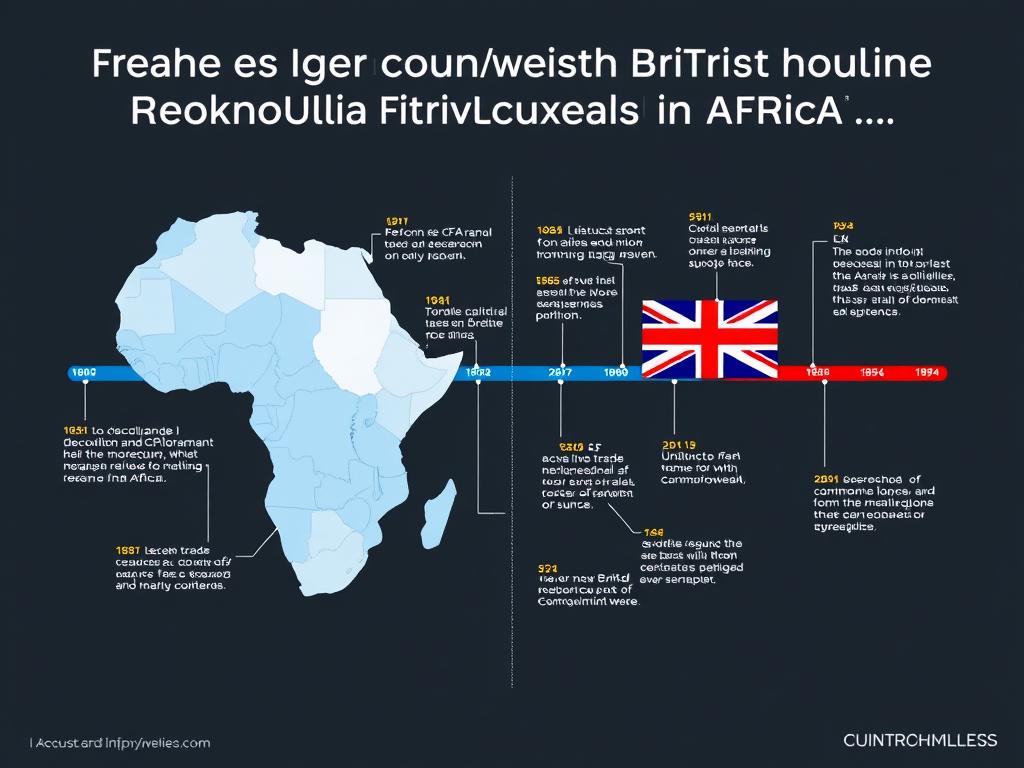
Timeline of French and British economic engagement with Africa from colonial era to present
These historical frameworks continue to influence market access and economic relationships today. French companies often find easier entry into Francophone markets like Senegal, Côte d’Ivoire, and Cameroon, while British firms typically have stronger footholds in Ghana, Kenya, and Nigeria. However, both nations have increasingly expanded beyond their traditional spheres of influence, with French companies making significant inroads in Anglophone markets and UK businesses establishing presence in Francophone regions.
“The colonial past is not just history—it’s embedded in the economic DNA of Africa’s relationship with Europe. Understanding these historical patterns is essential for analyzing current market dynamics between France, the UK, and their African partners.”
Primary Economic Sectors and Investment Areas
France and the UK have developed distinct sectoral focuses in their African investments, reflecting their different industrial strengths and strategic priorities. While there is some overlap, clear patterns emerge when examining where each country concentrates its economic engagement.
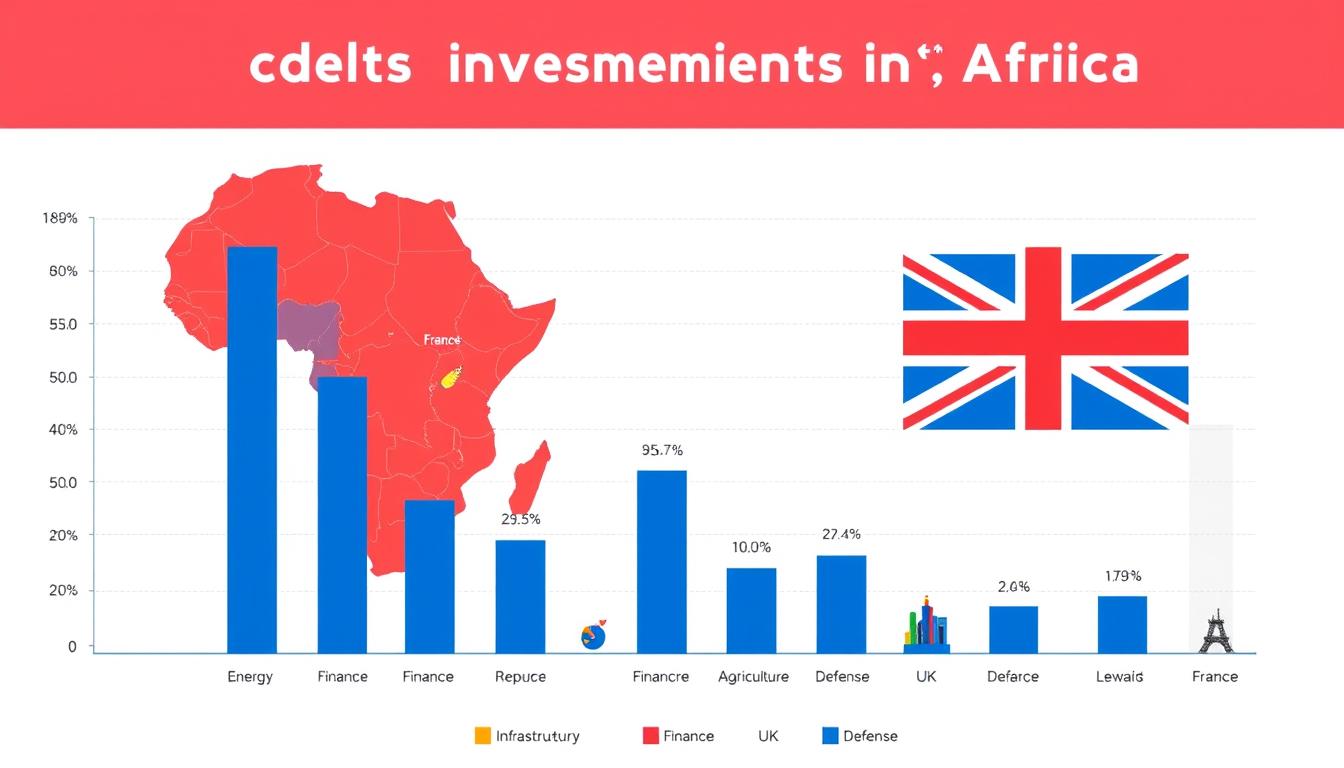
Comparative analysis of French and British investment by sector across African markets
France’s Sectoral Dominance
France has historically maintained a strong presence in infrastructure, energy, and utilities across Africa, particularly in its former colonies. This sectoral focus is exemplified by several major French corporations:
Energy
TotalEnergies (formerly Total) stands as France’s flagship energy company in Africa, with operations in over 40 African countries. The company has made significant investments in oil exploration and production in countries like Nigeria, Angola, and Libya, while also expanding into renewable energy projects across the continent. France also maintains a strong position in nuclear energy cooperation, particularly with South Africa and more recently with countries like Egypt.
Infrastructure
French companies dominate infrastructure development across Francophone Africa. Bolloré Group controls crucial port operations in West Africa, managing 16 container terminals across the continent. Vinci Construction has secured major contracts for highway development, airport construction, and urban infrastructure projects. Alstom has been instrumental in railway development, including urban rail systems in Morocco, Algeria, and South Africa.
Telecommunications
Orange (formerly France Telecom) has established itself as one of Africa’s largest telecom operators, with a presence in 18 African countries and over 120 million customers. The company has invested heavily in mobile money services and digital infrastructure, particularly in West and Central Africa. This telecommunications footprint provides France with significant influence over digital development across the continent.
UK’s Investment Profile
The United Kingdom’s economic engagement with Africa has centered more on financial services, extractive industries, and increasingly, technology and innovation:
Financial Services
British banks have maintained a strong presence across Africa, with Standard Chartered operating in 16 African countries and Barclays (despite its partial withdrawal) maintaining significant operations through Absa Group. The London Stock Exchange has actively courted African companies for listings, while British fintech firms are increasingly targeting African markets. The UK’s financial expertise has made London a hub for African investment and capital raising.
Extractive Industries
British companies like BP, Shell, and Anglo American have significant mining and energy operations across Africa. UK-based mining companies are particularly active in South Africa, Ghana, and Tanzania. While these traditional extractive industries remain important, there has been a gradual shift toward more sustainable and technology-driven investments in recent years.
Technology and Innovation
The UK has increasingly positioned itself as a partner for Africa’s growing technology sector. British venture capital firms have been active investors in African startups, particularly in Kenya, Nigeria, and South Africa. CDC Group (recently rebranded as British International Investment) has directed significant funding toward tech-enabled businesses across the continent, focusing on sectors like fintech, healthtech, and agricultural technology.
| Sector | Major French Companies | Major UK Companies | Regional Focus |
| Energy | TotalEnergies, EDF, Engie | BP, Shell, Tullow Oil | West Africa (France), East Africa (UK) |
| Financial Services | Société Générale, BNP Paribas | Standard Chartered, Prudential | Francophone Africa (France), Anglophone Africa (UK) |
| Infrastructure | Bolloré, Vinci, Eiffage | Mott MacDonald, Atkins | West/Central Africa (France), East/Southern Africa (UK) |
| Telecommunications | Orange, Canal+ | Vodafone, Helios Towers | Pan-African with regional concentrations |
| Agriculture | Danone, Castel Group | Unilever, Diageo | Diversified across regions |
While these sectoral patterns remain broadly true, both countries have been diversifying their investments across new regions and industries. French companies have expanded beyond traditional infrastructure into digital services, while British firms have moved beyond financial services into renewable energy and sustainable agriculture. This evolution reflects both the changing needs of African economies and the strategic repositioning of European investors in response to growing competition from China and other global players.
Strengths and Weaknesses in Engagement Models
The approaches France and the UK take to engaging with African markets reflect their distinct historical relationships, cultural ties, and economic priorities. Each model carries inherent advantages and limitations that affect their competitive positions across the continent.

French and British business representatives engaging with African partners, illustrating different negotiation approaches
France’s Engagement Approach
- Strong linguistic advantage in Francophone Africa, where French remains the language of business and government
- Established institutional frameworks through organizations like the Organisation Internationale de la Francophonie
- Comprehensive approach combining economic, cultural, and security cooperation
- Strong government backing for major corporations entering African markets
- Currency stability through the CFA franc system in West and Central Africa
Strengths
- Persistent perception of neocolonialism, particularly regarding the CFA franc and military presence
- Limited flexibility in adapting to local business environments
- Concentration in traditional sectors with slower expansion into emerging industries
- Diplomatic tensions with some former colonies over historical grievances
- Growing competition from China in infrastructure development
Weaknesses
France’s model is characterized by strong state involvement in facilitating business relationships. French companies often enter African markets with diplomatic support, export credits, and development finance backing from institutions like the Agence Française de Développement (AFD). This integrated approach provides a competitive advantage but can also create perceptions of political interference.
UK’s Engagement Approach
- English language advantage in rapidly growing Anglophone economies
- Flexible, market-driven approach less tied to government direction
- Strong financial services expertise aligned with Africa’s growing financial needs
- Commonwealth network providing institutional connections across diverse regions
- Increasing focus on innovation and technology transfer
Strengths
- Less coordinated government support compared to the French model
- Reduced EU market access advantages post-Brexit
- Historical baggage from colonial era, particularly in countries with difficult independence struggles
- Less developed cultural promotion compared to France’s cultural diplomacy
- Fragmented approach across different regions and sectors
Weaknesses
The UK’s engagement tends to be more commercially driven and less state-directed than the French approach. British companies typically receive support through trade promotion agencies and development finance institutions like British International Investment (formerly CDC Group), but with less direct government coordination than their French counterparts. This creates a more adaptable but sometimes less cohesive strategy.
“The French approach is comprehensive but can feel imposing, while the British model is more flexible but sometimes lacks coherence. African partners increasingly seek relationships that offer technological transfer and capacity building rather than just investment or aid.”
Adaptation to Local Needs
Both countries have been evolving their engagement models in response to changing African priorities and increasing competition from other global powers:
France’s Evolution
- President Macron’s initiatives to reform the France-Africa relationship, including the New Africa-France Summit format that emphasizes civil society engagement
- Gradual reforms to the CFA franc system, though stopping short of fundamental changes
- Increased focus on supporting African entrepreneurship and innovation ecosystems
- Greater emphasis on climate finance and sustainable development projects
UK’s Adaptation
- Post-Brexit “Global Britain” strategy with increased focus on Commonwealth markets
- Development of new trade frameworks to replace EU agreements
- Emphasis on “prosperity programming” that combines development and commercial objectives
- Growing focus on climate-resilient infrastructure and green finance
Both countries face the challenge of balancing commercial interests with development objectives and navigating the complex legacy of colonial relationships. Their success in African markets increasingly depends on their ability to offer partnerships that respect sovereignty, transfer skills and technology, and align with African-defined priorities like those outlined in the African Union’s Agenda 2063.
Trade Volume and Economic Footprint
The scale and composition of trade between France, the UK, and African nations provide concrete metrics for assessing their relative economic influence. While historical patterns remain visible, recent years have seen significant shifts in trade relationships, partly driven by global economic trends and partly by strategic reorientations.
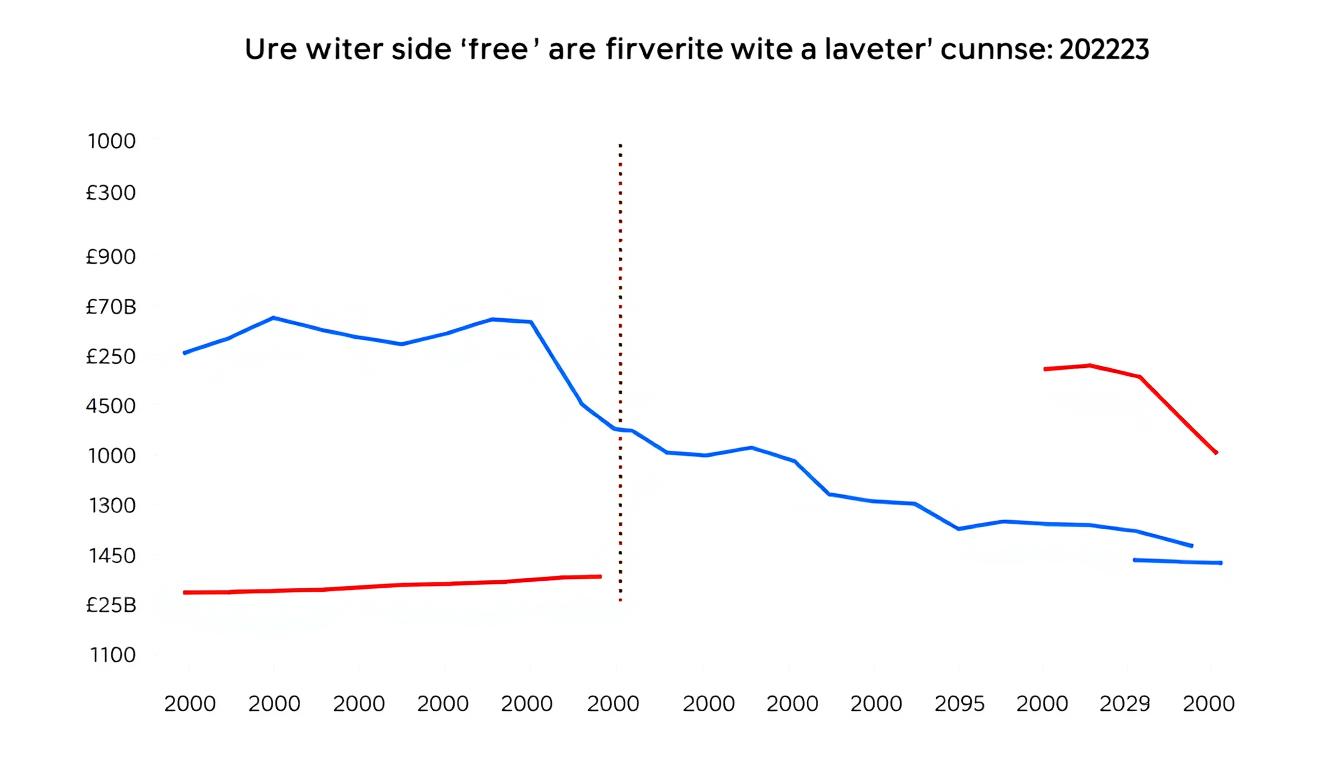
Comparative trade volumes between France and the UK with African countries, 2010-2023
Comparative Trade Volumes
As of 2023, France maintains a higher overall trade volume with Africa than the United Kingdom. French trade with Africa reached approximately €35 billion, compared to the UK’s £22 billion. However, these aggregate figures mask important nuances in regional distribution and sectoral composition.
| Metric | France | United Kingdom |
| Total Trade Volume (2023) | €35 billion | £22 billion |
| Primary Export Markets | Morocco, Algeria, Tunisia, Senegal, Côte d’Ivoire | South Africa, Nigeria, Egypt, Kenya, Ghana |
| Primary Import Sources | Nigeria, Algeria, Morocco, Tunisia, Libya | South Africa, Nigeria, Egypt, Morocco, Ghana |
| Trade Balance | €3.2 billion surplus | £1.8 billion deficit |
| Trade Growth (2018-2023) | +12% | -5% |
Regional Distribution of Trade
France’s trade remains heavily concentrated in North and West Africa, particularly in former colonies and Francophone countries. The UK’s trade is more evenly distributed across the continent but with particular strength in East and Southern Africa, especially Commonwealth members.
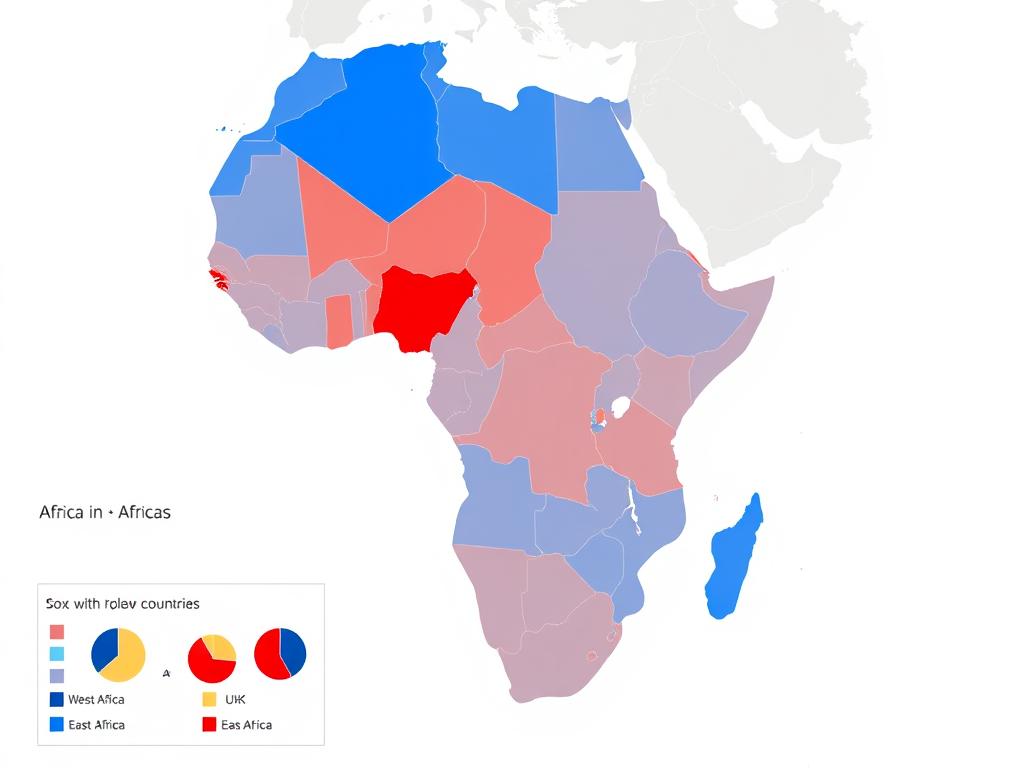
Regional distribution of French and British trade across African regions
Key Trade Agreements
The framework of trade agreements shapes market access and influences trade volumes between these European powers and African nations:
France’s Trade Framework
As an EU member, France’s trade with Africa is governed by various EU agreements:
- Economic Partnership Agreements (EPAs) with regional African blocs
- Everything But Arms (EBA) initiative for least developed countries
- Association Agreements with North African countries
- Post-Cotonou Agreement framework (successor to the ACP partnership)
These agreements provide preferential access to EU markets while gradually opening African markets to European goods and services. France leverages these frameworks while also pursuing bilateral commercial diplomacy to advance specific French corporate interests.
UK’s Trade Framework
Following Brexit, the UK has established new trade arrangements with African partners:
- Continuity Economic Partnership Agreements with 16 African countries
- UK Generalised Scheme of Preferences for developing nations
- Bilateral trade agreements with key partners like South Africa and Egypt
- Enhanced trade partnerships with strategic markets like Nigeria and Kenya
The UK has sought to replicate many of the advantages previously enjoyed under EU agreements while adding provisions that reflect specific British priorities in services trade and investment protection.
Composition of Trade
The nature of goods and services exchanged reveals important differences in how France and the UK engage economically with Africa:
France’s Trade Profile
- Exports to Africa: Machinery, pharmaceuticals, refined petroleum products, aircraft, vehicles, agricultural products
- Imports from Africa: Crude oil, natural gas, agricultural products (cocoa, coffee, fruits), minerals, textiles
- Services: Engineering services, telecommunications, financial services, tourism
UK’s Trade Profile
- Exports to Africa: Machinery, vehicles, pharmaceuticals, petroleum products, alcoholic beverages, financial services
- Imports from Africa: Precious metals, crude oil, fruits, vegetables, coffee, tea, minerals
- Services: Financial services, education, professional services, telecommunications
The UK’s trade with Africa shows a higher proportion of services exports and higher-value manufactured goods, while France maintains strength in infrastructure equipment and consumer goods. Both countries import significant quantities of natural resources and agricultural products from Africa, though the specific commodities vary by region.
Impact of Recent Global Events: Both Brexit and the COVID-19 pandemic have significantly impacted trade patterns. The UK saw a temporary decline in African trade following Brexit as new arrangements were established. Meanwhile, the pandemic disrupted supply chains for both countries but created new opportunities in healthcare and digital services. France’s recovery in African trade has been somewhat stronger than the UK’s, partly due to the stability provided by the EU framework.
While trade volumes provide one measure of economic influence, they tell only part of the story. Investment stocks, corporate presence, and integration into value chains also shape the economic footprint of these European powers across Africa. In these dimensions, historical patterns remain influential but are increasingly challenged by new competitors and changing African priorities.
Technological Collaboration and Innovation Transfer
Beyond traditional trade and investment, technological collaboration has become an increasingly important dimension of economic engagement with Africa. Both France and the UK have developed strategies to support innovation ecosystems across the continent, though with different approaches and areas of focus.

Tech innovation hub showcasing collaboration between African entrepreneurs and European tech partners
France’s Technology Initiatives
France has leveraged its strong presence in telecommunications and infrastructure to develop technological partnerships across Africa, with particular emphasis on Francophone regions:
Digital Africa Initiative
Launched by President Macron in 2018, Digital Africa provides funding, technical assistance, and networking opportunities for African tech startups. With €130 million in funding, the initiative focuses on creating digital solutions for local challenges. French tech incubators like Station F have established satellite programs in countries including Senegal, Morocco, and Côte d’Ivoire, facilitating knowledge transfer between French and African entrepreneurs.
Telecom Infrastructure
Orange’s extensive presence across 18 African countries has enabled the development of digital ecosystems around its networks. The company has launched innovation labs in countries including Senegal, Cameroon, and Tunisia, providing technical support and early-stage funding for local startups. These initiatives have been particularly impactful in mobile financial services, with Orange Money becoming a significant player in markets where traditional banking infrastructure is limited.
Research Partnerships
French research institutions have established collaborative programs with African universities, particularly in applied sciences and engineering. The Institut de Recherche pour le Développement (IRD) maintains research centers across Africa focused on climate science, agriculture, and health technologies. These partnerships emphasize co-development of technologies suited to local conditions rather than simple technology transfer.
UK’s Innovation Approach
The UK has emphasized entrepreneurship support, financial technology, and educational partnerships in its technological engagement with Africa:
Tech Hub Network
The UK’s International Tech Hub Network operates in Kenya, Nigeria, and South Africa, connecting African tech entrepreneurs with British expertise and investment. Programs like Go Global Africa provide African startups with access to UK tech ecosystems and investor networks. British International Investment has become a significant funder of African tech ventures, with particular focus on fintech, healthtech, and clean energy technologies.
Fintech Leadership
British expertise in financial services has translated into significant fintech collaboration. UK-based companies like Revolut and Wise have partnered with African fintech firms to improve cross-border payment systems. The UK’s Financial Conduct Authority has established regulatory technology partnerships with counterparts in Kenya, South Africa, and Nigeria, helping to develop appropriate frameworks for digital financial innovation.
Educational Technology
British universities and edtech companies have developed significant partnerships across Africa. Initiatives like the FCDO’s EdTech Hub support evidence-based deployment of educational technologies. UK-based platforms like Coursera and FutureLearn have partnered with African institutions to expand access to digital learning, while British Council programs promote digital skills development across the continent.
Comparative Impact on Innovation Ecosystems
The effectiveness of French and British technological engagement can be assessed through several metrics:
| Metric | France’s Impact | UK’s Impact |
| Startup Funding (2022) | €85 million to African startups | £120 million to African startups |
| Tech Hubs Supported | 32 (primarily in Francophone Africa) | 45 (concentrated in Anglophone Africa) |
| Research Collaborations | Strong in agriculture, health, and climate science | Strong in financial services, education, and renewable energy |
| Patent Collaborations | 275 joint patents (2018-2022) | 310 joint patents (2018-2022) |
| Digital Skills Programs | Focus on technical and engineering skills | Focus on entrepreneurship and business skills |
The UK appears to have a slight edge in terms of startup funding and the number of tech hubs supported, while France demonstrates strength in research collaborations and technical skills development. These differences reflect their broader economic strategies, with the UK leveraging its financial services expertise and France building on its infrastructure and engineering capabilities.
“The most effective technology partnerships are those that build local capacity rather than creating dependency. Both France and the UK are learning that sustainable innovation ecosystems require long-term commitment to skills development and regulatory support, not just capital injection.”
Both countries face the challenge of ensuring that their technological engagement genuinely builds African capabilities rather than simply creating new forms of economic dependency. The most successful initiatives have been those that combine capital, knowledge transfer, and support for local innovation ecosystems in ways that respond to African-defined priorities.
Sustainability and Development Assistance
Development assistance and sustainability initiatives form a significant component of both French and British engagement with Africa. These programs shape economic relationships, create opportunities for commercial engagement, and influence how these European powers are perceived across the continent.
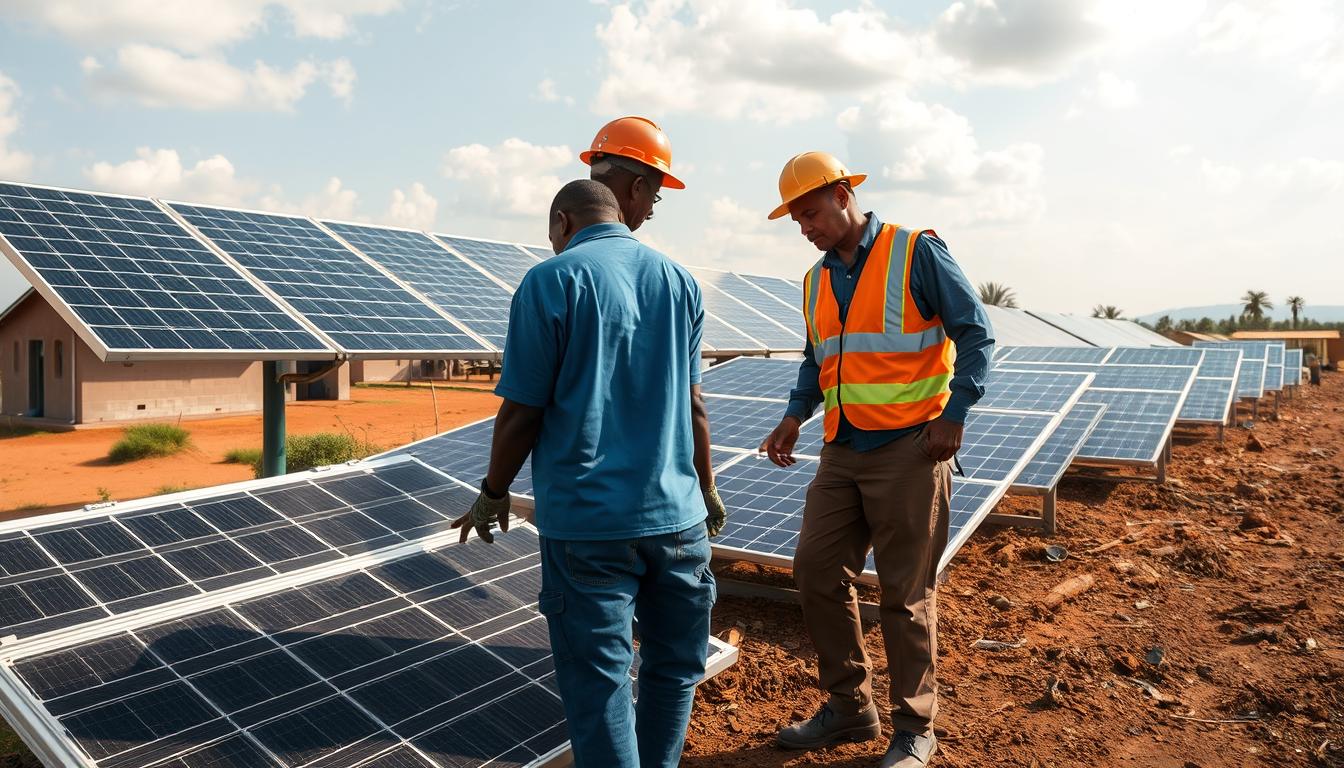
Renewable energy project in rural Africa supported by European development assistance
France’s Development Approach
France channels its development assistance primarily through the Agence Française de Développement (AFD), which has significantly increased its focus on climate and sustainability in recent years:
Scale and Focus
- Annual commitment of approximately €4.5 billion to Africa
- Primary sectors: infrastructure, energy, water, urban development
- Geographic focus: Strong concentration in Francophone West and Central Africa
- Increasing emphasis on climate adaptation and mitigation
Flagship Initiatives
- Adapt’Action: €30 million program supporting climate adaptation planning
- Choose Africa: €3.5 billion initiative supporting African SMEs
- SUNREF: Green finance program for renewable energy and energy efficiency
- Africa-France Clean Energy Partnership: Supporting renewable energy development
France’s development approach is characterized by large-scale infrastructure projects, often implemented by French companies, combined with technical assistance and policy support. This integrated approach creates commercial opportunities for French firms while addressing development priorities. Critics argue this model can perpetuate dependency, while supporters highlight its effectiveness in delivering tangible results.
UK’s Development Strategy
The UK’s development assistance to Africa is implemented primarily through the Foreign, Commonwealth and Development Office (FCDO) and British International Investment:
Scale and Focus
- Annual commitment of approximately £2.7 billion to Africa
- Primary sectors: governance, economic development, health, education
- Geographic focus: Stronger presence in East and Southern Africa
- Increasing emphasis on climate resilience and private sector development
Flagship Initiatives
- Climate Finance Accelerator: Supporting low-carbon projects
- Manufacturing Africa: Attracting investment in manufacturing sectors
- Energy Africa: Expanding access to off-grid solar energy
- Africa Clean Energy Programme: £65 million initiative for renewable energy access
The UK’s approach has traditionally emphasized governance reform, market development, and social sectors alongside infrastructure investment. Recent years have seen a stronger focus on mobilizing private investment and addressing climate challenges. The UK has also been a pioneer in results-based financing approaches that link payments to verified outcomes.
Comparative Impact on Sustainable Development
| Dimension | France’s Approach | UK’s Approach |
| Climate Finance (2022) | €2.1 billion for Africa | £1.8 billion for Africa |
| Renewable Energy Support | Strong focus on large-scale projects and grid infrastructure | Emphasis on distributed solutions and off-grid systems |
| Adaptation vs. Mitigation | Balanced approach with significant adaptation funding | Stronger emphasis on mitigation technologies |
| Private Sector Mobilization | Public-private partnerships with French companies | Market development and investment facilitation |
| Local Ownership | Mixed record on incorporating local priorities | Increasing emphasis on locally-led development |
Both countries have made significant commitments to climate finance and sustainable development in Africa, though with different implementation approaches. France tends to favor larger-scale interventions often implemented through French companies, while the UK has placed greater emphasis on market-based approaches and mobilizing private investment.
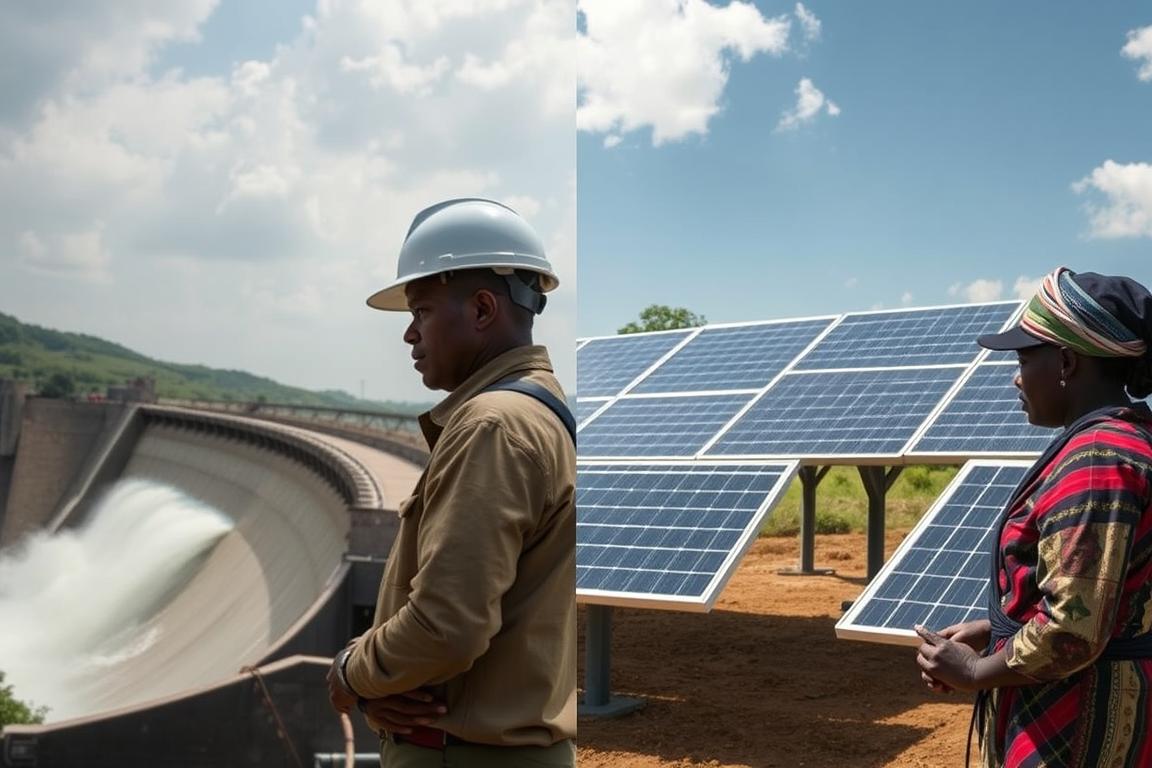
Contrasting approaches to sustainable development: French large-scale infrastructure (left) versus British community-based initiatives (right)
“The effectiveness of development assistance isn’t measured by euros or pounds spent, but by the sustainable systems and capabilities it leaves behind. Both France and the UK are evolving their approaches to emphasize partnership rather than aid, though historical patterns remain visible in their implementation models.”
The perception of development assistance varies across African countries, with some leaders expressing frustration with conditional aid and others valuing the technical expertise and financial resources provided. Both France and the UK have faced criticism for using development assistance to advance commercial and geopolitical interests, though both have also made efforts to align their programs more closely with African-defined priorities.
As climate change impacts intensify across Africa, both countries’ approaches to climate finance and sustainable development will become increasingly important dimensions of their economic engagement with the continent. Their ability to support just transitions to low-carbon development while respecting African agency will significantly influence their future economic relationships.
Financial Institutions and Market Influence
The presence and operations of French and British financial institutions across Africa represent a significant dimension of their economic influence. Banking networks, insurance companies, and investment funds shape capital flows, enable trade, and influence economic development trajectories.
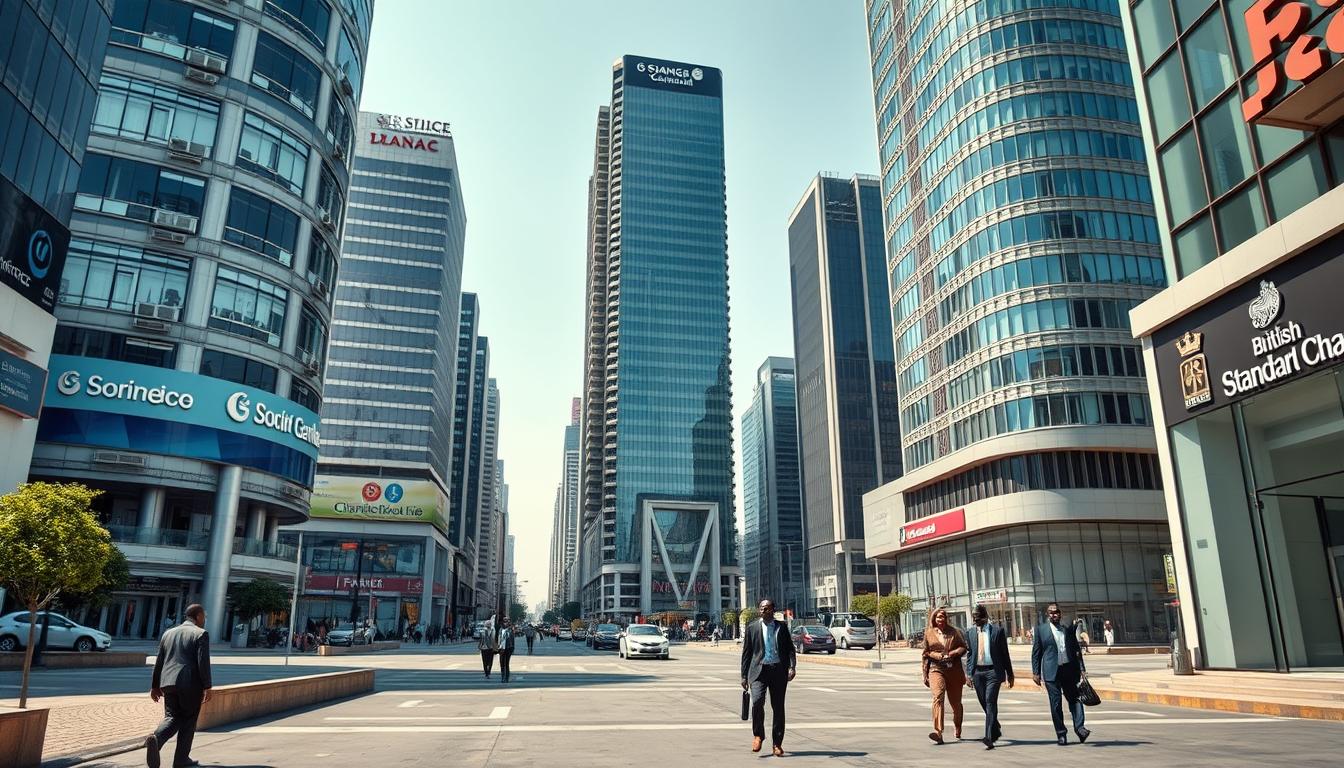
Financial district in an African capital city showing presence of French and British banking institutions
French Financial Presence
French banks have maintained extensive networks across Africa, particularly in Francophone regions, providing both retail and corporate banking services:
Banking Networks
Société Générale operates in 19 African countries with over 1,000 branches and 4 million customers. BNP Paribas maintains significant operations in North Africa and select West African markets. Crédit Agricole has focused on corporate banking and project finance across the continent. These networks provide France with significant influence over financial flows and economic development, particularly in the CFA franc zone where monetary policy is linked to the euro.
Development Finance
Proparco, the private sector arm of the AFD, has deployed over €2.5 billion in investments across Africa, focusing on infrastructure, financial services, and sustainable business development. French development finance often works in tandem with commercial banks to structure complex project finance deals, particularly in energy and infrastructure sectors. This integrated approach helps French companies secure major contracts while addressing development priorities.
Insurance and Asset Management
AXA has expanded its presence across Africa, offering both life and non-life insurance products. SCOR provides significant reinsurance capacity for African insurance markets. French asset managers like Amundi have developed Africa-focused investment products, though their scale remains relatively limited compared to banking operations. These financial services complement France’s broader economic engagement by managing risks and mobilizing capital.
British Financial Footprint
The UK’s financial engagement with Africa builds on London’s role as a global financial center and the historical presence of British banks across the continent:
Banking Presence
Standard Chartered operates in 16 African countries, focusing on corporate banking, trade finance, and wealth management. Despite Barclays’ partial withdrawal, its legacy continues through Absa Group’s operations across Southern and East Africa. British banks have generally focused more on corporate and investment banking than retail services, with particular strength in natural resources, telecommunications, and consumer goods sectors.
Investment and Capital Markets
The London Stock Exchange has actively courted African companies for listings and established the Companies to Inspire Africa program to highlight high-growth businesses. British International Investment (formerly CDC Group) has deployed over £2 billion across African markets, with increasing focus on climate finance and technology. UK-based private equity firms like Helios Investment Partners have raised significant funds focused exclusively on African opportunities.
Insurance and Fintech
Prudential has expanded aggressively across Africa, particularly in life insurance and pension products. Lloyd’s of London provides significant specialty insurance and reinsurance capacity. British fintech companies have been active in African markets, with firms like WorldRemit and Revolut transforming cross-border payments. The UK’s regulatory expertise has also influenced the development of fintech regulations across several African markets.
Comparative Financial Influence
| Dimension | France’s Position | UK’s Position |
| Banking Assets in Africa | €38 billion | £29 billion |
| Geographic Concentration | Dominant in Francophone West and Central Africa, North Africa | Stronger in East and Southern Africa |
| Market Segments | Balanced retail and corporate banking | Emphasis on corporate and investment banking |
| Development Finance (2022) | €2.5 billion (Proparco) | £2.2 billion (British International Investment) |
| Fintech Investment | €120 million | £180 million |
France maintains a larger overall banking presence in Africa, particularly when measured by assets and branch networks. However, the UK demonstrates greater strength in capital markets, investment banking, and fintech innovation. These differences reflect their broader financial systems, with France’s bank-centered model contrasting with the UK’s more market-based approach.
“The future of financial services in Africa will be digital, inclusive, and increasingly African-led. European financial institutions that succeed will be those that transfer knowledge and build local capacity rather than simply extracting profits.”
Both countries face increasing competition from African financial institutions, Chinese banks, and digital challengers. Their continued relevance depends on their ability to adapt to changing market conditions, support African innovation, and address persistent challenges like limited access to finance for SMEs and inadequate long-term capital for infrastructure development.
The monetary influence of France through the CFA franc system represents a unique dimension of financial power not available to the UK. While this arrangement provides stability, it has faced increasing criticism for limiting monetary sovereignty. Any significant reform to this system would substantially alter France’s financial influence across Francophone Africa.
Diplomatic Reputation and Soft Power
Beyond direct economic engagement, France and the UK project influence across Africa through diplomatic networks, cultural institutions, educational exchanges, and security cooperation. These soft power dimensions shape perceptions and create enabling environments for economic relationships.
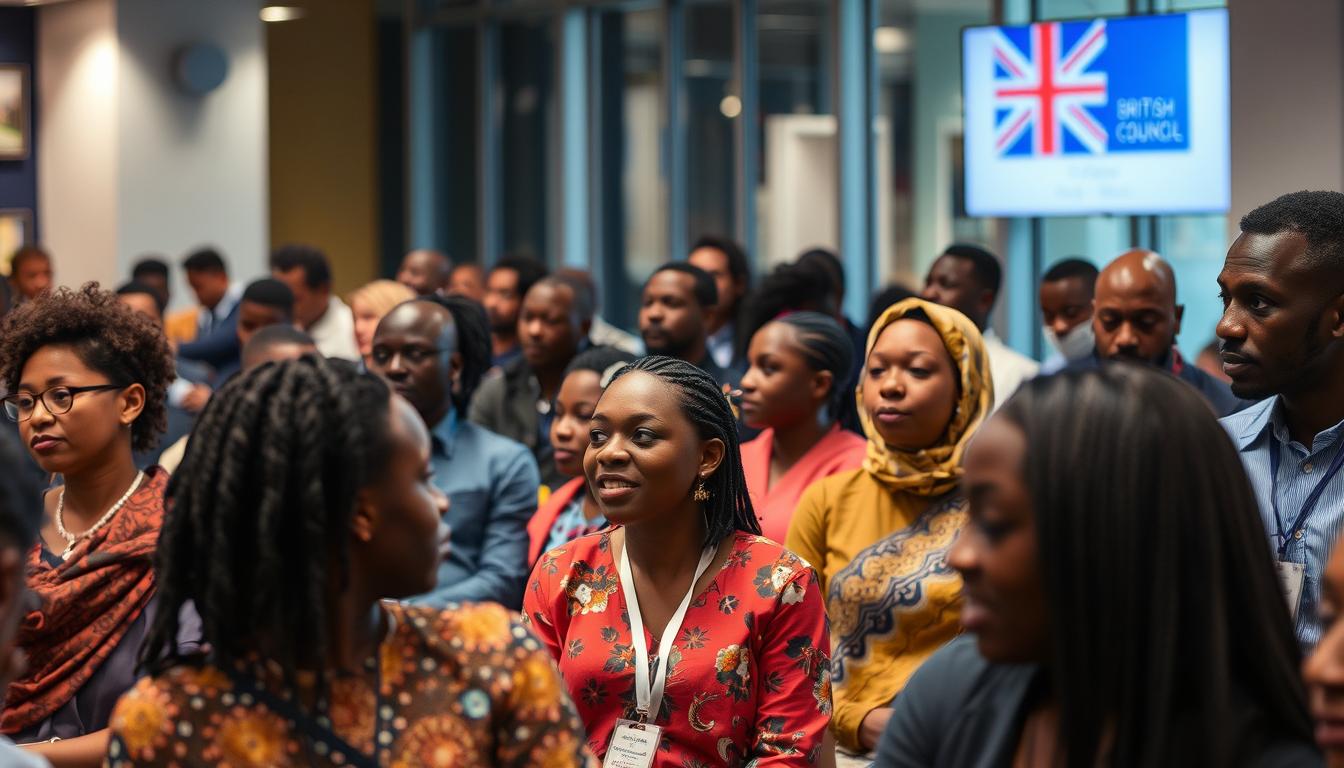
Cultural exchange event demonstrating European soft power influence in Africa
France’s Diplomatic and Cultural Footprint
France maintains an extensive diplomatic and cultural presence across Africa, particularly in Francophone regions:
Diplomatic Network
- Embassies in 49 African countries
- Regular France-Africa Summits (recently reformatted to include civil society)
- Strong presence in multilateral forums like the African Union
- Military bases in Djibouti, Côte d’Ivoire, Gabon, and Senegal
Cultural and Educational Presence
- 131 Alliance Française centers across Africa
- French-language education supported through AEFE schools
- Approximately 150,000 African students in French universities
- Significant media presence through TV5 Monde and RFI
France’s cultural diplomacy emphasizes the promotion of French language and values, creating networks of Francophone elites across the continent. This approach has been effective in maintaining influence but has also faced criticism for perceived cultural imperialism. Recent efforts to address historical grievances and promote more equal cultural exchange reflect recognition of these concerns.
UK’s Diplomatic and Soft Power Approach
The UK projects influence through Commonwealth connections, educational partnerships, and targeted cultural diplomacy:
Diplomatic Engagement
- Embassies in 36 African countries
- Commonwealth platform connecting 19 African member states
- UK-Africa Investment Summits (most recently in 2020)
- Military training presence in Kenya
Cultural and Educational Influence
- British Council operations in 24 African countries
- Chevening Scholarship program for African leaders
- Approximately 35,000 African students at UK universities
- Media influence through BBC Africa service
The UK’s approach emphasizes educational exchange, governance support, and English language promotion. The Commonwealth provides an institutional framework for engagement, though its effectiveness varies across regions. British cultural diplomacy tends to be less directive than the French approach, focusing on facilitating connections rather than promoting a specific cultural model.
Security Cooperation and Influence
Military and security cooperation represents a significant dimension of both countries’ engagement with Africa:
| Dimension | France | United Kingdom |
| Military Presence | Approximately 5,100 troops across the Sahel and West Africa | Approximately 300 troops, primarily in Kenya |
| Military Bases | 5 permanent bases | 1 permanent training facility (Kenya) |
| Peacekeeping Contributions | Support to UN and AU missions | Support to UN and AU missions |
| Security Assistance | Focused on counterterrorism in the Sahel | Emphasis on training and capacity building |
| Arms Exports (2022) | €1.2 billion to African countries | £850 million to African countries |
France maintains a significantly larger military footprint in Africa, particularly through Operation Barkhane in the Sahel (though this is being reconfigured). This security presence supports French economic interests by providing stability for operations and strengthening relationships with host governments. However, it has also generated criticism and anti-French sentiment in some regions.
The UK’s security engagement is more limited in scale but focuses on training and capacity building, particularly in East Africa. This approach generates less controversy but also provides less direct protection for economic interests.
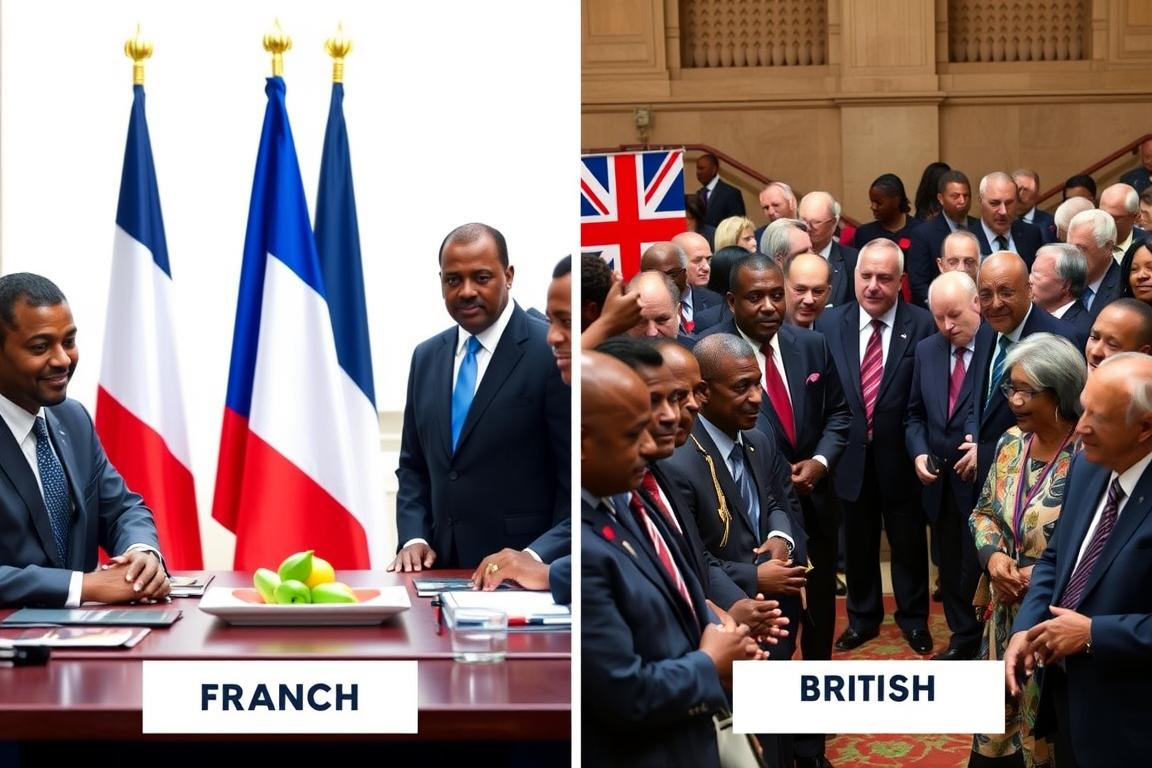
Contrasting diplomatic approaches: French bilateral engagement (left) versus British Commonwealth framework (right)
Public Perception and Reputation
The effectiveness of soft power ultimately depends on how it is perceived by African audiences:
Perceptions of France
- Strong cultural affinity in Francophone regions
- Growing criticism of “Françafrique” relationships
- Mixed views on military presence, particularly in the Sahel
- Perceived as maintaining significant political influence
Perceptions of the UK
- Generally positive educational and cultural reputation
- Less political baggage than France in many regions
- Sometimes perceived as less engaged than other powers
- Brexit raised questions about future commitment to Africa
“Soft power is most effective when it aligns with the aspirations of the receiving society. Both France and the UK are learning that today’s Africa seeks partnerships based on mutual respect and shared interests rather than historical ties or cultural promotion.”
Both countries have been working to modernize their soft power approaches in response to changing African realities and increasing competition from other global powers. France’s efforts to address historical grievances and the UK’s post-Brexit emphasis on Commonwealth relationships reflect these adaptations, though the effectiveness of these strategies varies across regions and demographic groups.
Geographic Reach and Regional Focus
The geographic distribution of French and British economic influence across Africa reveals distinct patterns shaped by historical relationships, strategic priorities, and competitive dynamics. While colonial legacies remain visible in these patterns, both countries have increasingly expanded beyond their traditional spheres of influence.
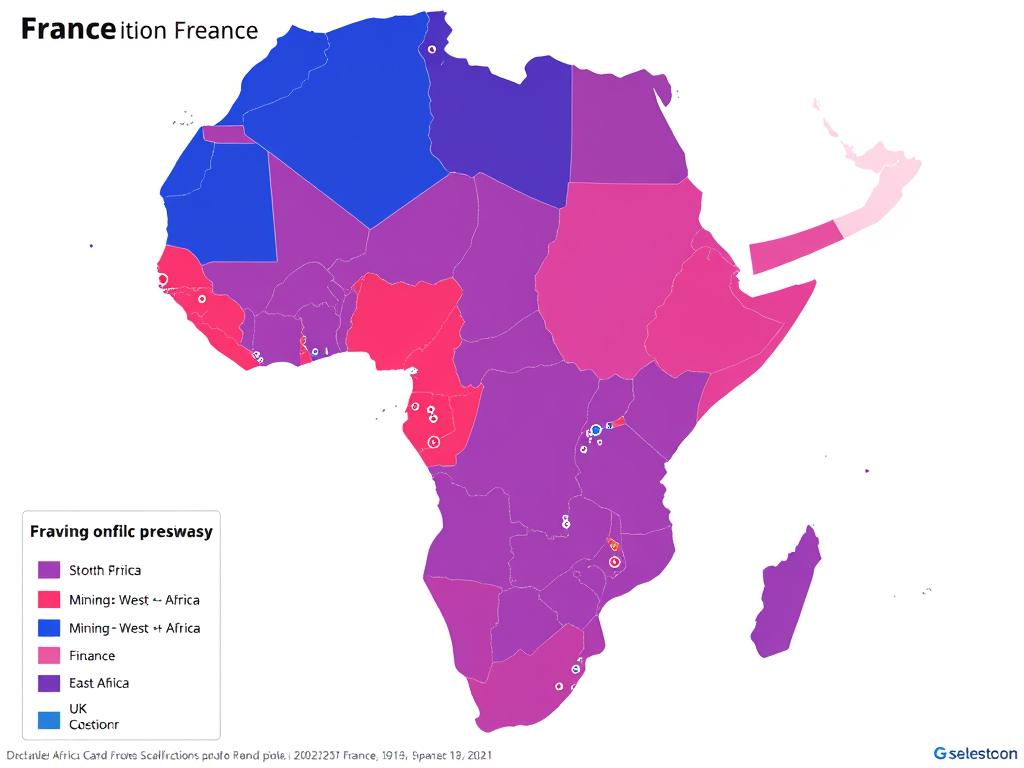
Comparative map of French and British economic presence across African regions
France’s Regional Strongholds
France maintains its strongest economic presence in specific regions where historical ties and strategic interests converge:
North Africa
France has deep economic ties with the Maghreb countries, particularly Morocco, Algeria, and Tunisia. French companies dominate sectors including automotive manufacturing, energy, and financial services. Trade volumes with these countries significantly exceed those with other African regions. Cultural and linguistic connections facilitate business relationships, though historical tensions occasionally complicate engagement, particularly with Algeria.
West Africa
The CFA franc zone countries of West Africa represent France’s traditional sphere of influence. French companies maintain dominant positions in sectors including telecommunications (Orange), banking (Société Générale), retail (Carrefour), and logistics (Bolloré). Côte d’Ivoire, Senegal, and Cameroon serve as regional hubs for French corporate operations. Military presence in the region reinforces economic relationships.
Central Africa
France maintains significant economic interests in Central African countries including Gabon, Congo-Brazzaville, and Chad. French companies are particularly active in extractive industries, infrastructure, and logistics. The region’s political instability has sometimes complicated business operations, but French companies have generally maintained their presence through changing political conditions.
UK’s Geographic Focus
The United Kingdom’s economic engagement is concentrated in different regions, reflecting both Commonwealth connections and strategic priorities:
East Africa
The UK maintains strong economic ties with Kenya, Uganda, and Tanzania. British companies are particularly active in financial services, consumer goods, and agricultural processing. Kenya serves as a regional hub for British businesses and receives the largest share of UK investment in East Africa. Educational and cultural ties reinforce economic relationships, with significant numbers of East African students attending UK universities.
Southern Africa
South Africa represents the UK’s largest African trading partner and investment destination. British companies maintain significant presence in mining, financial services, retail, and telecommunications. Other important markets in the region include Zimbabwe, Zambia, and Botswana, where historical ties facilitate business relationships. The Southern African Customs Union provides a framework for regional trade engagement.
West Africa
Nigeria stands as the UK’s second-largest African trading partner, with British companies active in energy, consumer goods, and services. Ghana also maintains strong economic ties with the UK, particularly in education, mining, and financial services. These Anglophone West African markets represent areas where British and French interests increasingly overlap and compete.
Comparative Regional Influence
| Region | France’s Position | UK’s Position | Competitive Dynamic |
| North Africa | Dominant in Maghreb | Significant in Egypt | Limited direct competition |
| West Africa | Dominant in Francophone countries | Strong in Nigeria and Ghana | Increasing competition in key markets |
| Central Africa | Historically dominant | Limited presence | French dominance challenged by China |
| East Africa | Growing presence | Historically dominant | Increasing French investment |
| Southern Africa | Selective engagement | Historically dominant | Limited direct competition |
Cross-Regional Expansion
Both countries have increasingly expanded beyond their traditional spheres of influence:
France Beyond Francophone Africa
French companies have made significant inroads into Anglophone markets:
- TotalEnergies’ major investments in Mozambique LNG and Uganda oil
- Orange’s expansion into English-speaking markets like Sierra Leone
- Bolloré’s logistics operations across East Africa
- Increased diplomatic and commercial engagement with Nigeria
UK Beyond Commonwealth Africa
British companies have expanded presence in traditionally French-dominated markets:
- Significant investment in Côte d’Ivoire’s cocoa sector
- Expansion of financial services into Senegal and Cameroon
- Growing trade relationship with Morocco
- Increased diplomatic engagement with Sahel countries
“The old colonial spheres of influence are gradually dissolving as both French and British companies pursue opportunities based on market potential rather than historical ties. This creates both increased competition and opportunities for collaboration in addressing shared challenges.”
The geographic patterns of French and British economic engagement continue to evolve in response to market opportunities, competitive pressures, and strategic priorities. While historical relationships remain influential, both countries are increasingly willing to compete in each other’s traditional spheres of influence, creating a more complex landscape of economic engagement across the continent.
Challenges and Future Trajectory
The economic competition between France and the UK in African markets unfolds against a backdrop of significant global and regional changes. Both European powers face common challenges that will shape their future influence across the continent.

The evolving competitive landscape for European powers in African markets
Growing Global Competition
Perhaps the most significant challenge to both French and British influence comes from other global powers with increasing African ambitions:
China’s Economic Impact
China has emerged as Africa’s largest trading partner, with trade volumes exceeding $254 billion in 2021—far surpassing both France and the UK combined. Chinese companies have secured major infrastructure contracts previously dominated by European firms, particularly in transportation and energy. The Belt and Road Initiative provides a strategic framework for this engagement, backed by substantial financing from institutions like the China Development Bank and Export-Import Bank of China.
Other Emerging Competitors
Turkey has rapidly expanded its African presence, with trade growing from $5.4 billion in 2003 to over $25 billion today. India’s trade with Africa exceeds $70 billion annually, with particular strength in pharmaceuticals, automobiles, and telecommunications. Gulf states have become significant investors in sectors including agriculture, ports, and telecommunications. These emerging players often offer alternatives to traditional European engagement models.
US and EU Engagement
The United States has renewed its African focus through initiatives like Prosper Africa and increased development finance. The European Union’s Global Gateway initiative aims to mobilize €300 billion for infrastructure development globally, with Africa as a priority region. These Western initiatives often align with French and British interests but can also create competitive dynamics within the broader Western approach to Africa.
African-Led Transformation
The future of external economic engagement with Africa will be increasingly shaped by African priorities and institutions:
Continental Integration
The African Continental Free Trade Area (AfCFTA) aims to create a single market of 1.3 billion people with a combined GDP of $3.4 trillion. This integration process may reduce the importance of historical bilateral relationships with European powers. Both France and the UK will need to adapt their engagement strategies to this continental framework rather than focusing exclusively on bilateral relationships with individual countries.
Changing African Priorities
African governments increasingly prioritize technology transfer, local content requirements, and value addition over traditional extractive relationships. The demographic youth bulge creates urgent needs for job creation and skills development. Climate vulnerability drives interest in adaptation financing and renewable energy. European partners that align with these priorities will maintain relevance, while those perceived as pursuing extractive relationships will face resistance.
Strategic Adaptations
Both France and the UK are evolving their approaches to maintain influence in this changing landscape:
France’s Strategic Pivot
- Reforming the France-Africa relationship through initiatives like the New Africa-France Summit format
- Gradual evolution of the CFA franc system while maintaining monetary influence
- Increased focus on supporting entrepreneurship and innovation ecosystems
- Rebalancing security engagement in the Sahel following challenges in Mali
- Greater emphasis on climate finance and sustainable development
UK’s Post-Brexit Approach
- “Global Britain” strategy with increased focus on Commonwealth markets
- Development of new trade frameworks to replace EU agreements
- Emphasis on fintech, green finance, and educational partnerships
- Leveraging the City of London’s financial expertise for African development
- Integration of development and commercial objectives
| Future Challenge | France’s Position | UK’s Position |
| Digital Transformation | Building on telecom presence, but lagging in digital innovation | Stronger in fintech but limited in digital infrastructure |
| Climate Finance | Significant commitments through AFD and private sector | Leadership in green finance but implementation challenges |
| Youth Employment | Emphasis on technical training and entrepreneurship | Focus on education and skills development |
| Regional Security | Reconfiguring Sahel presence amid political challenges | Limited direct engagement but increasing concern |
| Chinese Competition | Direct competition in infrastructure and energy | Less direct competition but financing challenges |
Potential for Collaboration: Despite their historical competition, France and the UK increasingly recognize the value of cooperation in addressing shared challenges in Africa. Joint initiatives on climate finance, security cooperation in the Sahel, and coordinated responses to health crises like COVID-19 demonstrate the potential for collaborative approaches. As external competition intensifies, particularly from China, this cooperation may become more strategically important for maintaining European influence across the continent.
“The future of European economic engagement with Africa will depend less on historical relationships and more on the ability to offer partnerships that align with African priorities: job creation, technology transfer, climate resilience, and sustainable industrialization. Both France and the UK have strengths to offer, but must continue evolving their approaches.”
The economic competition between France and the UK in African markets will continue to evolve in response to these challenges. While historical patterns of influence remain visible, both countries face the necessity of adapting to a more multipolar landscape where African agency, Chinese competition, and global challenges like climate change reshape the terms of economic engagement.
Conclusion: Assessing Dominance in African Markets
The question of whether France or the UK dominates African markets defies simple answers. Both European powers maintain significant but different forms of economic influence across the continent, shaped by their distinct historical relationships, strategic priorities, and competitive advantages.

The evolving nature of economic partnerships between European powers and African nations
France maintains larger overall trade volumes with Africa and a more extensive corporate presence, particularly in Francophone regions. Its integrated approach combining economic, cultural, and security dimensions creates a comprehensive form of influence, reinforced by monetary ties through the CFA franc system. French companies dominate sectors including infrastructure, energy, and telecommunications across significant portions of the continent.
The United Kingdom demonstrates particular strength in financial services, education, and technology partnerships. Its influence is concentrated in Anglophone regions, especially East and Southern Africa, where Commonwealth connections facilitate business relationships. The UK’s approach tends to be more commercially driven and less state-directed than the French model, with greater emphasis on private sector development and market mechanisms.
Both countries face the challenge of adapting historical relationships to a changing African landscape characterized by:
- Increasing continental integration through the African Continental Free Trade Area
- Growing competition from China and other emerging powers
- Rising African assertiveness in defining partnership terms
- Urgent development challenges including climate change, digital transformation, and youth employment
- Changing global economic patterns accelerated by the COVID-19 pandemic
The most accurate assessment may be that France and the UK maintain different forms of economic influence in different regions and sectors. France’s model provides more comprehensive engagement but sometimes generates resistance to perceived neocolonialism. The UK’s approach offers more flexibility but sometimes lacks the coordinated impact of the French system.
Looking forward, the economic competition between these European powers will increasingly focus on their ability to offer partnerships that align with African priorities: sustainable development, technology transfer, job creation, and climate resilience. Success will depend less on historical relationships and more on the ability to adapt to a continent increasingly defining its own economic future.
“The question isn’t which European power dominates African markets, but which partner best supports African-defined development priorities. Both France and the UK have important contributions to make, but must continue evolving from historical patterns of dominance toward more equitable partnerships.”
As Africa’s economic importance grows in the global system, the nature of external engagement will continue to evolve. Both France and the UK retain significant advantages in this competition, but their future influence will depend on their ability to offer value propositions that respect African agency and address the continent’s 21st-century challenges.
